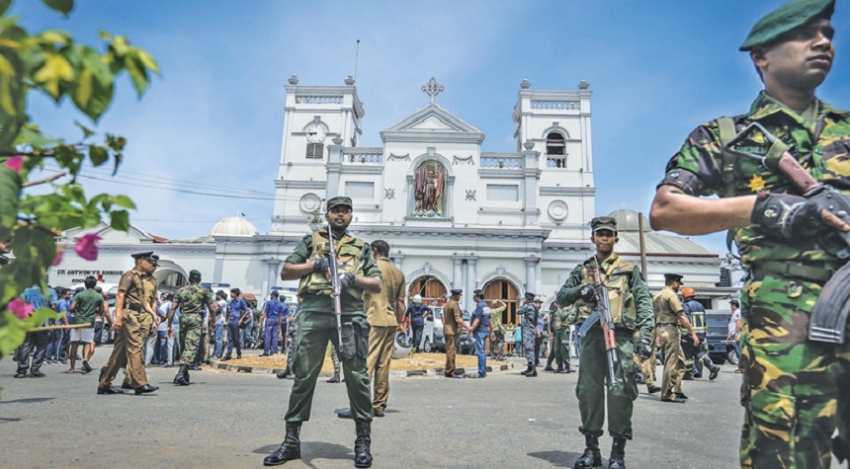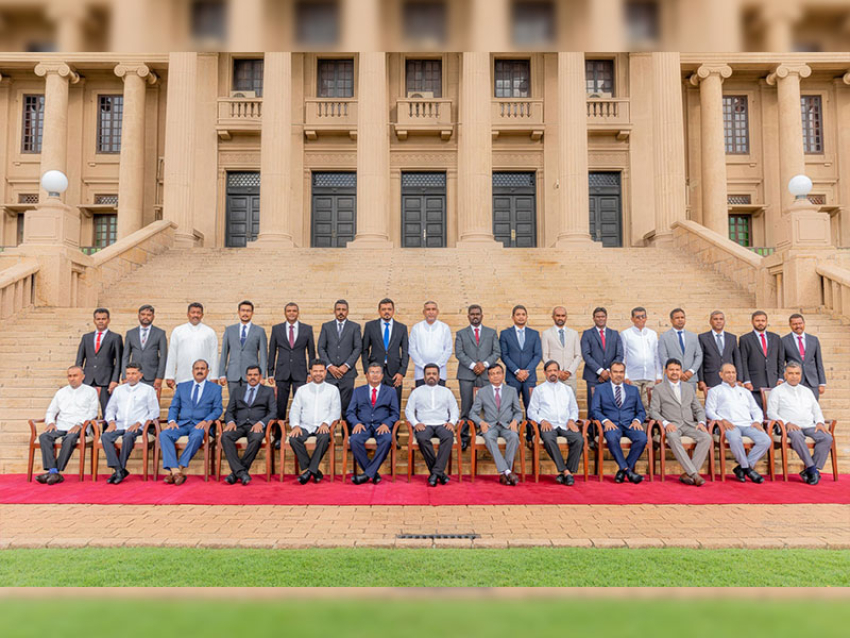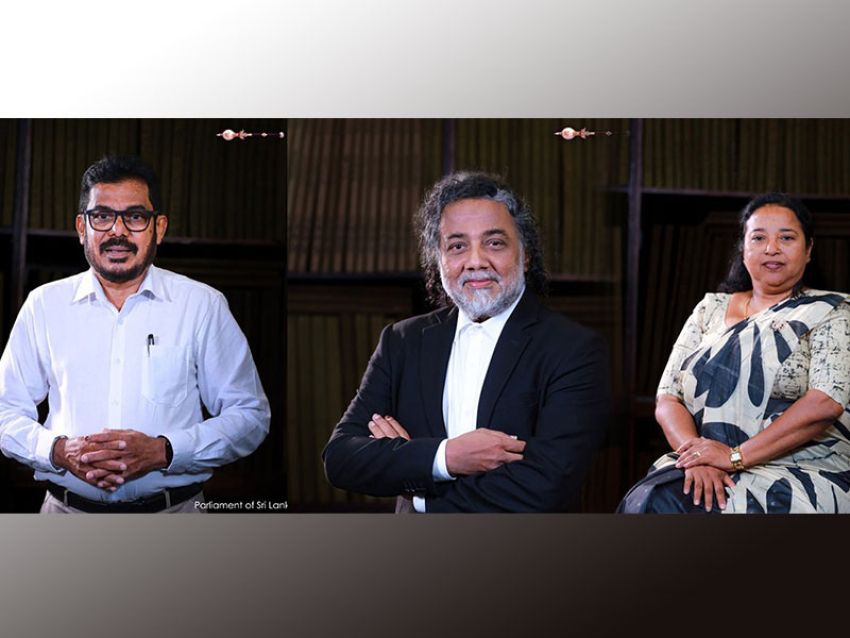Last Easter Sunday was marked by one of the most brutal terrorist attacks in Sri Lankan history as over 250 innocent people including children fell victims to multiple terrorist attacks. The whole world, along with the Sri Lankans, stood with the loved ones of the victims in that tragic moment and unreservedly condemned those fiendish and cowardly terrorist acts.
Global rates of terrorism have skyrocketed since 9/11, yet the aggregate increase tells us very little about the distribution of attacks across different regime types. A decade ago, there was a popular perception in the West that high-quality democracies have an advantage in facing the scourge of terrorism. This view has been proven wrong.
Barcelona, Berlin, Boston, Brussels, London, Madrid, Manchester, New York, Nice, Paris, Stockholm, Sydney - over the past several years these and other cities of the democratic West have become places widely identified with terrorist attacks involving suicide belts, ramming by cars or trucks, improvised bombs, mass shootings etc.
Not surprisingly, these trends have sparked public anxiety and sown fears in many countries, that democratic societies have become the favoured targets for terrorists. In the wake of the latest Easter Sunday attack and subsequent discoveries of bombs, many Sri Lankans might be wondering how vulnerable they have become and what security measures are now in place to prevent future attacks.
Most citizens believe the fight on terrorism is a function of the Police, emergency services, the intelligence community, and the military. Though it is true that all public safety and national security resources play a vital role in combatting terrorism, effectively winning the war on terrorism requires everyone’s participation. From housewives and clergymen to waitresses and store clerks, everyone plays an important role in preventing and responding to terrorist attacks.
It may be useful to study from the experiences of other countries some of the things that citizens can do to support the local and national effort to win the war against terrorism.
Observe and report suspicious activity
What should citizens be looking for with regard to “suspicious activity?” What is really meant by “suspicious activity?” Addressing these questions requires a basic understanding of how these threat groups operate and how the attacks are planned and executed. These types of observable activities are referred to as “threat indicators.”
When people think of suspicious activity, they normally visualise suspicious looking men entering and leaving a house or an apartment at unusual hours or overhearing suspicious conversations. Of course, such public sightings have, on a number of occasions, led authorities to uncovering terrorist plots.
However, there are many other types of activities that can suggest the potential for a terrorist attack. Most of these indicators relate to the terrorist’s gathering of target intelligence, the acquisition of materials necessary for an attack, preparation of bombs or chemical or biological weapons, and the initial steps of executing an attack, such as delivery of bombs, gaining access to a vehicle and entering destination.
Intelligence gathering
All terrorist operations begin with a process of intelligence gathering. This often involves conducting reconnaissance visits or stationary surveillance of a target for weeks or even months. This is where an observant citizen gets an excellent opportunity to recognize a threat indicator associated with target surveillance.
A counter Terrorism Security Advisor in USA quotes a good example. “A waitress in a restaurant may notice that two men who come in every morning for breakfast always sit by a certain window. The same two men stay for a long time and seem more interested in activity outside of the window than talking. Whenever they do talk, and when someone approaches their table, they quickly change their topic of discussion.” He says that this type of activity should be regarded as highly suspicious (especially if the window provides a view of an ideal terrorist target, such as a government building, shopping mall, or crowded commercial centre.).
He adds, “People who loiter for very long periods of time, people who seem to take strong interest in a particular facility or building, or anyone who seems self-conscious or nervous while photographing or videotaping a location should be regarded as suspicious.”
Awareness
Citizens who work in locations that sell or store possible bomb making materials or items that can be used in manufacturing chemical or biological weapons should be aware of suspicious purchases or thefts. Many items commonly used in making bombs or chemical weapons are openly sold in hardware stores, pharmacies, garden stores, hobby shops, and electronics stores. For example, hardware clerks should be aware of anyone purchasing threaded pipes and end caps, gas canisters, large quantities of pesticides, ammonia nitrate fertilizers, etc. To recognize suspicious purchases and thefts, workers need to be made aware what items are located in their workplace that have value in terrorist applications.
The public should also be aware of threat indicators related to the preparation and delivery of terrorist weapons. For example, many terrorist groups acquire vehicles for attacks by theft or rental. As a result, people who work for vehicle rental companies should be aware of anyone renting a utility van or truck that appears vague or suspicious about its purpose.
Landlords and citizens should also be aware of unusual activities around apartments or rental properties. For instance, an apartment tenant may notice unusual petroleum or acidic smells coming from a neighbour’s apartment, or an employee in a rental storage complex may notice 55-gal drums being moved in or out of a rental space. These are both examples of the types of subtle indicators that ordinary citizens may observe.
Terrorists frequently steal employee identity cards to gain access to protected facilities. There are a number of documented cases where terrorists have kidnapped or killed facility employees for their credentials or clothing uniforms. In Northern Ireland and the Middle East, terrorists have even taken families hostage to coerce a member of the family (often a facility employee) to deliver a bomb by proxy.
Sudden changes
Individuals who commit terrorist acts generally go through a period of radicalization that leads to their violent behaviour. Be on the lookout for alarming behavioural changes in colleagues, acquaintances, friends, or family that might indicate radicalization. These changes might include: (1) Suddenly dropping relationships with family and long-time friends, (2) A drastic change in dress, eating, sleeping, money management, or spoken language, (3) Becoming anti-social and withdrawing from everyday life, (5) Expressing radical or extremist views, or participating in social media networks that promote these views. Be alert on them.
People often do subconscious risk assessments in potentially dangerous situations. Do not ignore that instinct. It could prevent a suicidal attack from happening. When people are unsure what is happening, they sometimes make the mistake of sticking around or getting closer to find out. If you suspect something is wrong, get away from the area and call police.
Terrorism preparedness is an important part of keeping your family and friends safe. Whether it’s an attack from abroad, or an attack from within – terrorism is a very real threat.
We have proved ourselves to be a nation that has what it takes to fight terrorism, protect ourselves and get rid the country of the terrorist menace. We did it once and can do it again. However, there is no way law enforcement agencies can do the job themselves, we have to take individual responsibility as well. Every citizen, regardless of career or circumstance, should play an important role in protecting the community.




















